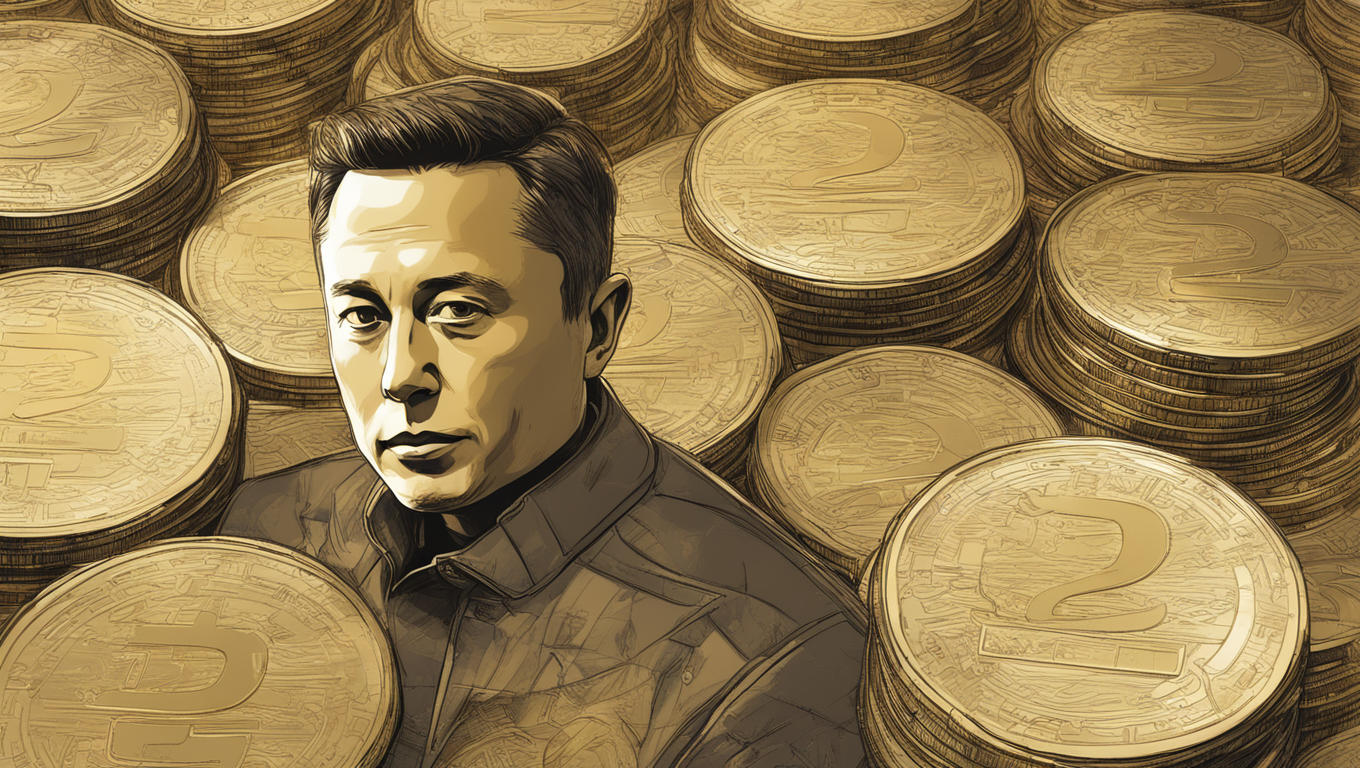In the fiercely competitive world of artificial intelligence (AI), Elon Musk’s xAI has recently made waves by raising a staggering $6 billion in funding. While this news may seem promising, it comes with a chilling prediction from Mr. Musk himself: the potential replacement of human jobs by AI. So, what exactly is xAI’s mission and how does it fit into the larger AI landscape?
xAI’s primary focus is on developing advanced AI systems that are realistic, highly capable, and beneficial to humanity. According to Mr. Musk, the company’s mission is to understand the true nature of the universe. To support this development, he has plans to build a supercomputer comprising 100,000 H100 Nvidia GPUs, expected to be operational by next fall. This immense computational power is crucial for training models like Grok-2, which required 20,000 H100s, and future models like Grok-3 that will need 100,000 chips.
However, Mr. Musk has also expressed concerns about the approach of other major AI players such as Google Gemini and OpenAI in partnership with Microsoft. He believes they are not “maximally truth-seeking” and are instead “pandering to political correctness.” He highlights an example where Google Gemini prioritized misgendering Caitlyn Jenner over global thermonuclear warfare, arguing that this kind of bias is extremely dangerous. Mr. Musk emphasizes the importance of rigorously truthful AI and believes regulators should focus on ensuring its integrity.
Japanese computer engineer Kiyohara Jin adds another perspective to the discussion. He raises concerns about the speed of AI development outpacing human morality, leading to potential job displacement and loss of control. He states, “From the current trend, the faster AI develops, the faster human jobs will be replaced. If human brains are implanted with chips, people will be completely controlled by machines.”
Mr. Musk also discusses the impact of AI on children and education, stating that parents will still be responsible for instilling values and morals. However, he recognizes the transformative potential of AI in education, describing it as a patient teacher that can tailor lessons specifically to each child. He does express concern about the influence of social media and AI algorithms on children, urging parents to limit their exposure to these platforms.
These predictions about AI’s impact on human lives and the labor market echo those made by Zack Kass, a former senior marketing executive at OpenAI. Kass suggested that people will eventually have no jobs and will heavily rely on AI for their daily lives. In fact, a recent survey revealed that 75 percent of employees already use AI in the workplace. However, over half of them hide this fact, fearing that their jobs may be replaced. This displacement has led to protests in various industries, including filmmaking, where AI is becoming increasingly prevalent.
The rapid development of AI has certainly sparked both excitement and concern. As Mr. Ogino puts it, “Whether AI development is positive or negative, it will bring disaster to humanity.” While there are potential benefits in terms of efficiency and tailored education, there is also the risk of humans becoming overly dependent on AI and losing control over their own thoughts and behaviors.
As the competition in the AI landscape continues to heat up, it is crucial to consider not only the advancements in technology but also the implications they bring. The true challenge lies in finding a balance between the potential benefits and the preservation of human agency and morality in an increasingly AI-driven world.
Quotes:
- Elon Musk: “I think what regulators should be concerned about is, is the AI being rigorously truthful? … And that’s what we’re trying to do.”
- Kiyohara Jin: “From the current trend, the faster AI develops, the faster human jobs will be replaced. If human brains are implanted with chips, people will be completely controlled by machines.”
- Elon Musk: “Parents will still be responsible for [their children’s] values and morals, [but] AI will dramatically affect education. Because AI is a patient teacher, it will be almost always correct, and can tailor lessons specifically to the child.”
- Mr. Ogino: “Whether AI development is positive or negative, it will bring disaster to humanity. In a negative scenario, the continuation of human survival will face enormous challenges. In a positive scenario, humans will become overly dependent on AI for all decisions, cease to labor and think, and eventually become puppets manipulated by AI, altering their thoughts and behaviors.”





Use the share button below if you liked it.